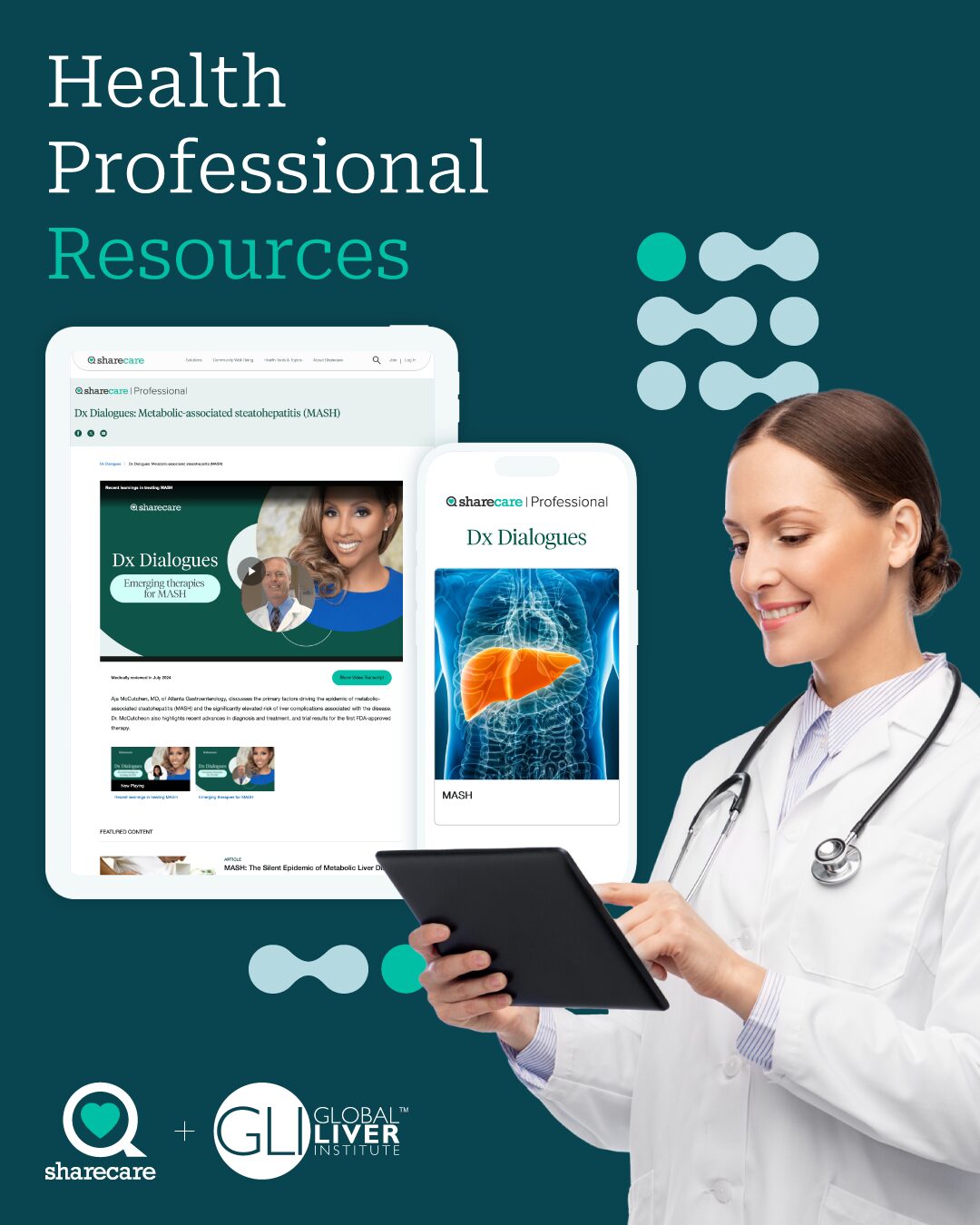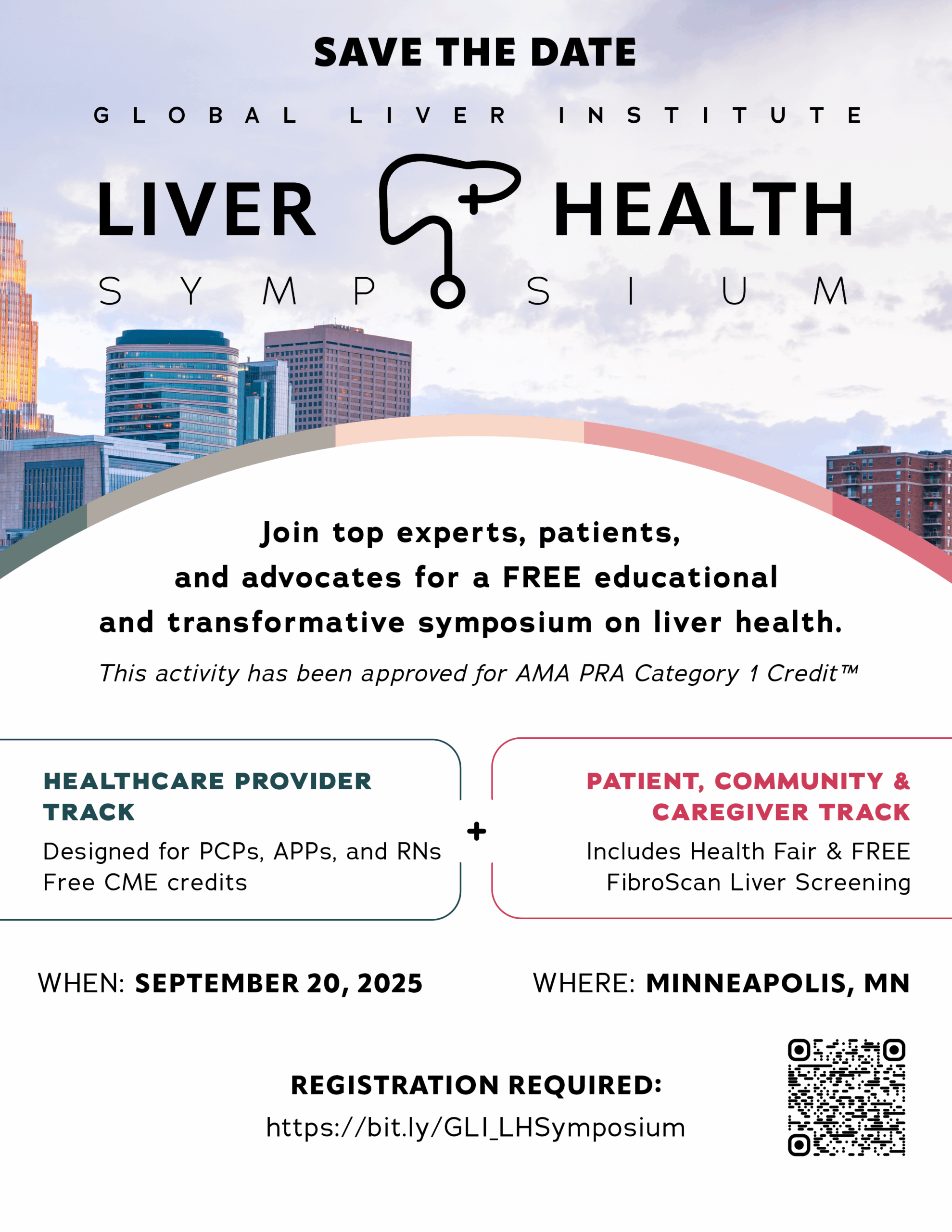
United Voices for Liver Health
A Note from the Director, Dr. Sharon H. Jaycox
Advocacy in Liver Disease: Bridging Knowledge, Empathy, and Action Uniting Patients and Doctors Through Education and Shared Experience
I recently participated in a retreat alongside several members from another advocacy group with which I am actively engaged. Within that organization, our central mission for advocacy lies in the realms of health, education, and economics. That distinction prompted me to reflect on GLI’s mission and our responsibilities as advocates, and to consider what true advocacy means within the liver community. Advocacy in the context of liver disease serves many purposes. At its core, it is about championing the rights, needs, and voices of those affected. For patients, advocacy can mean the difference between isolation and empowerment. For doctors, it represents a commitment to continual learning and compassionate care. And for the healthcare system, it is a catalyst for policy change, research funding, and better outcomes.
For patients, the first step in effective advocacy is education. Patients equipped with knowledge about their diagnosis, treatment options, and prognosis are better positioned to engage in meaningful conversations with their healthcare team. Patients should be encouraged to ask questions, seek second opinions, and participate actively in their care. These skills are not innate; they must be cultivated through support and education. Workshops, webinars, and patient navigators can all play vital roles in developing patient confidence and autonomy. Peer support is invaluable. Meeting others who share similar experiences offers emotional relief and practical advice and breaks down the sense of isolation that liver disease often brings. Advocacy groups, both in-person and online, provide a sense of belonging and community.
While patients are at the heart of advocacy, doctors hold a unique position of influence. Their voices carry authority, and their actions can shape both individual experiences and systemic change. Providers should not merely treat but truly listen. Understanding each patient’s story, their symptoms, struggles, and fears offers crucial insight that textbook knowledge cannot. By advocating for their patients, doctors challenge stigma, push for resources, and create an environment where individuals feel respected and valued. Advocacy means being willing to go beyond the confines of routine care. This could mean fighting for insurance coverage for necessary tests, supporting patients in accessing clinical trials, or simply making a call to expedite a referral. Doctors, as patient advocates, can become powerful allies in navigating the healthcare system’s complexities.
Each story matters, each voice counts, and every act of advocacy brings us closer to a world where liver disease no longer defines lives, but where lives define the future of liver health. Advocacy in liver disease requires ongoing commitment and collaboration from all involved. By empowering patients, educating providers, and uniting communities, we can ensure a future where liver disease is less isolating, less misunderstood, and truly conquerable.
Advocating for Steatotic Liver Disease on the Global Health Stage, with Larry Holden
As our work to elevate liver disease within global non-communicable diseases (NCDs) discussions continues, Global Liver Institute’s CEO Larry Holden shares his vision for advancing liver health around the world—and why steatotic liver disease can no longer be left out of the global health conversation, in an exclusive interview for HCPLive.
Emerging Insights and Information
Thyroid Function and MASLD Risk Stratification in Children with Obesity: A Non-Negligible Link
While research has demonstrated the linkage between metabolic dysfunction associated-steatotic liver disease (MASLD) and thyroid functioning in adults, this relationship has not been well-explored in children. A recent study conducted by the University of Campania Luigi Vanvitelli in Naples, Italy, has indicated that thyroid functioning is negatively affected by children with obesity, with more than one MASLD criterion. Understanding the relationship between MASLD and thyroid function is relevant to children with obesity and increased cardiometabolic risk.
The Prevalence and Determinants of NAFLD and MAFLD and Their Severity in the VA Primary Care Setting
A diagnosis for MAFLD requires the presence of metabolic factors, whereas NAFLD indicates the lack of heavy alcohol consumption. With a change in nomenclature and criterion for diagnosis, researchers at the Baylor College of Medicine in Houston, Texas, randomly sampled 1510 participants among 2437 eligible Veteran patients to determine concordance between MAFLD and NAFLD nomenclature. Results from the study found concordance between NAFLD and the alternative MAFLD definition. NAFLD was present in 40% of Veterans registered in primary care; 9.4% of veterans had at least moderate hepatic fibrosis, with most having concurrent NAFLD.
Acute Fatty Liver of Pregnancy (AFLP): Practice Essentials, Pathophysiology, Epidemiology
AFLP is a serious condition caused by an accumulation of fat in the liver. Women who develop AFLP are likely to have a gene mutation that will result in a heterozygous long-chain 3-hydroxyacyl-coenzyme A dehydrogenase (LCHAD) deficiency. Since this gene is recessive, complications arise when the fetus is homozygous for this mutation and will, in turn, be unable to oxidize fatty acids. The mother will not be able to metabolize additional fatty acids and will experience hepatic strain. Despite being relieved by pregnancy, AFLP still has a high risk for high maternal and neonatal morbidity and mortality without prompt diagnosis and treatment.
Liver Biopsy No Longer Required for Rezdiffra
A win for patients and advocates! Anthem health plans and their pharmacy benefit manager, CarelonRx, have removed the requirement for liver biopsy from their Rezdiffra policy coverage. Approximately 11.6 million lives will be impacted by this decision.
Spleen Stiffness Predicts the Risk of Liver-related Complications in Patients With Compensated Advanced Chronic Liver Disease
Portal hypertension (PH) is a consideration for patients with compensated advanced chronic liver disease (cACLD). The gold standard for assessing portal hypertension is hepatic venous pressure gradient measurement. In a recent study, researchers found Spleen stiffness measurements (SSM) by transient elastography useful for predicting the risk of liver-related complications.
⬇️ Tools and Resources ⬇️
The American Diabetes Association has posted the following: The ENLIGHTEN Phase 3 clinical trial, a study for people with metabolic dysfunction-associated steatohepatitis (MASH), is currently recruiting participants. ENLIGHTEN is a Phase 3 clinical trial program evaluating the safety and effectiveness of the investigational drug pegozafermin. Pegozafermin is a fibroblast growth factor-21 (FGF21) analog designed to mirror the activity profile and prolong the half-life of the native FGF21 hormone, which may address underlying metabolic issues that drive liver and cardiometabolic diseases, including MASH. Contact: enlighten@89bio.com or call 415.432.9270.
Dx Dialogues: Metabolic-associated steatohepatitis (MASH)
Global Liver Institute collaborated with Sharecare to create a MASH content destination center that provides healthcare providers with timely medical information, market trends, and more. Visit the resource center here.
New Liver Disease Facebook Group
Madrigal recently launched a private Facebook group called Taking on Fatty Liver and MASH Together. This group is a space for people affected by MASH to connect, share their experiences, and support one another on their journeys. You can find it at:
Join Leading Experts at the Cardiometabolic Health Congress this October
We’re proud to announce our partnership with the 2025 Cardiometabolic Health Congress taking place October 23-25 in Boston! Join leading experts for cutting-edge research and clinical updates in cardiometabolic medicine. Use our exclusive promo code GLI100 to save $100 on your registration. Looking forward to connecting with colleagues and advancing patient care together!
Global Liver Institute’s Liver Health Symposium is Next Month
Global Liver Institute’s Liver Health Symposium is coming to Minneapolis, MN on Saturday, September 20, 2025—and you’re invited! This FREE, in-person event is open to both community members/patients and healthcare providers, with two distinct tracks designed to meet your needs.
For Community Members & Patients:
Learn how to protect your liver, understand your risk, and take action for your health. Hear from local healthcare experts and patient advocates, explore educational health booths, ask questions in live Q&A sessions, and receive a free liver screening.
For Healthcare Providers:
Join leading experts from Mayo Clinic and other top institutions to improve your knowledge of liver disease detection, management, and treatment. Earn free CME credits while gaining practical tools to improve patient care and participate in a provider-only workgroup focused on advancing liver care delivery.
Don’t miss this opportunity to get informed, empowered, and connected.
Upcoming Events
- September 5-8, 2025: Global Liver Institute’s Advanced Advocacy Academy (A3), Washington, D.C.
- September 11 & 12: Paris MASH Meeting, Paris, France
- September 20: Liver Health Symposium, Minnesota
- September 29 – October 1: 9th Mash Drug Development Summit, Boston, MA



